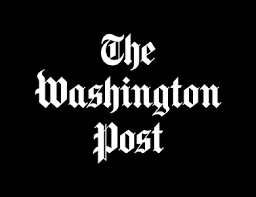Les camps de réfugiés et la guerre : Du sanctuaire à l'enfermement humanitaire ?
Refugee and IDP camps, intended to protect civilians affected by conflicts and natural disasters, have an undeniable strategic importance, and their management can be critical for the resolution of crises.
Migrations et développement : l'enjeu environnemental et l'avenir des politiques migratoires
This paper analyzes the future of migrations related to climate changes and environment degradations.
Migrations and Developpement: A Need for Coherent Policies Adapted to Reality
Migration is a universal phenomenon rising complex issues in sending countries as in receiving or transit countries. Yet, issues and stakes linked to the migratory phenomenon are often simplified by public debates as in public policies supposed to solve this “problem”.
Migrations, Remittances and Development - Comparing Experiences from Mexico and Maghreb
The potential synergy between development and migration has become a key feature of most international migration politics. However, this relationship is far from evident.
How Can Europeans Agree on a Common Migration Policy?
Immigration was a key priority of the French EU Presidency in 2008.


France accepts migrant rescue ship rejected by Italy as tensions flare
A weeks-long ordeal for asylum seekers who had been stranded at sea concluded on Friday, as the French government granted safe harbor for the Ocean Viking rescue ship in the southern city of Toulon.


France accepts a migrant rescue ship as relations sour with Italy
As a ship carrying more than 200 migrants rescued at sea docked in a French port on Friday, a diplomatic crisis between France and Italy worsened, signaling further chaos in the European Union's already erratic handling of asylum seekers coming to Europe.
Migrants rescued in the Mediterranean: What does international law say?
After several days of diplomatic wrangling with Italy, France decided to 'exceptionally' allow the humanitarian ship Ocean Viking to dock. While maritime law requires the rescue of migrants in danger, it does not state which country should welcome them.
Interview with David Miliband, President and CEO of the International Rescue Committee
Can you describe the humanitarian impact of the war in Ukraine, in Europe, including with regards to displacement, and beyond the outside of Europe?


France: 'Precarious' employment conditions for refugees
Around 42% of refugees settled in France manage to find a job within a year of obtaining official status. But the jobs they find are often far below their skill levels, resulting in a "professional downgrade" that leads to discontent and exhaustion.
Support independent French research
Ifri, a foundation recognized as being of public utility, relies largely on private donors – companies and individuals – to guarantee its sustainability and intellectual independence. Through their funding, donors help maintain the Institute's position among the world's leading think tanks. By benefiting from an internationally recognized network and expertise, donors refine their understanding of geopolitical risk and its consequences on global politics and the economy. In 2025, Ifri supports more than 80 French and foreign companies and organizations.









